What the U.S. Can Learn From Cuba’s Food Revolution
Long before President Obama's historic opening, American and Cuban foodies have been exchanging cutting edge ideas in agriculture and health.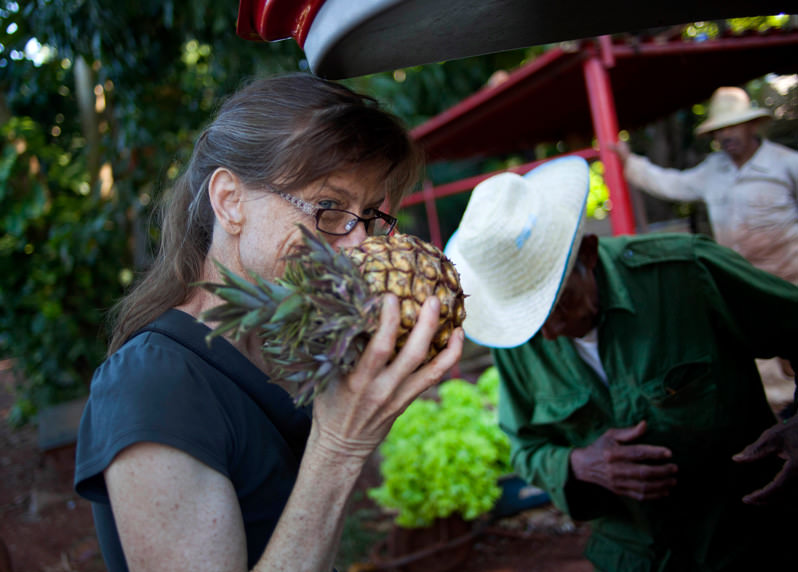 U.S. chef Kelsie Kerr smells a pineapple while shopping for fruit and vegetables at a farm in Havana, Cuba. AP/Ramon Espinosa
U.S. chef Kelsie Kerr smells a pineapple while shopping for fruit and vegetables at a farm in Havana, Cuba. AP/Ramon Espinosa
Barack Obama’s historic opening to Cuba could build momentum leading to permanent change. The president has called for restoring full diplomatic relations, expanding trade and liberalizing travel rules. The infamous embargo remains in place, pending possible congressional action.
Long before the announcement, however, progressive American nonprofits had been trying to expand cultural and economic ties with Cuba. Their experiences shine some light on what others can expect interacting with the new Cuba.
Chef and restaurateur Narsai David was sent to Cuba by the Green Cities Fund, an Oakland nonprofit helping to establish a culinary academy in Havana.
Dressed in a flowery shirt and sporting a ’50s era beatnik goatee, he stood in a field next to farmworkers in dusty jeans and dirt-soiled boots.
David was visiting Havana as part of a cultural exchange to learn about Cuba’s world-class experiment in organic farming.
He has the credentials. In the 1970s, he owned a famous restaurant near Berkeley called Narsai’s. Along with Alice Waters of Chez Panisse, David is one of the originators of California cuisine.
David faced the difficult task of collaborating with farmers and chefs in a developing country more famous for rice and beans than healthy cuisine. In the course of his 10-day trip, David would demonstrate his culinary skills and, in turn, learn about Cuba’s widespread use of organic farming. Ninety percent of Cuba’s fruits and vegetables are grown without chemicals, according to Cuban agronomists, making the country the largest per capita consumer of organic produce in the world.
Late one morning, David and I ambled through the fields of an organic farm not far from the Havana airport. Planes zoomed overhead as farmworkers in brown khakis and high rubber boots checked the fields. The farm uses no chemical pesticides or fertilizers.
The rows of sunflowers looked haphazardly planted, but they served to attract bugs and protect the nearby spinach. Farm owner Iris Matos uses animal and vegetable waste to make compost. Cubans turned to organic farming for very practical reasons when the USSR collapsed and Cuba could no longer afford to buy chemicals, she said.
But Cubans came to embrace organic philosophy as well. Chemical fertilizers and pesticides are still very expensive, Matos explained, but more significantly, they permanently damage the environment. “What we eat is what we grow,” she told me. “If we’re spraying chemicals, then we’re eating the chemicals. It’s a question of the food culture. We’re struggling to get people to eat healthier.”
Matos also owns a central Havana restaurant called La Antonia. It’s one of hundreds of privately owned restaurants legalized in the past 20 years in an effort to create jobs. Matos serves fresh produce daily from her farm, carrying forward the California cuisine concept. A gourmet meal at La Antonia costs about $25 per person, with drinks. That’s very expensive here since the average Cuban earns $20 a month. Nevertheless, affluent Cubans, tourists and foreign residents fill the tables at La Antonia.
Matos is a city girl who returned to the land. Her clothing style reflects her new urban-farmer outlook. When we spoke, she wore stylish cargo pants, a spaghetti strap blouse and a straw cowboy hat.
Her father had been a farmer. She noted that small private farms and co-ops “are more efficient and productive. We work hard and produce for ourselves and for the country.”
Matos and other small farmers get advice from government agronomists. One of them, Fernando Funes, became known as the father of Cuban organic farming.
David and I met Funes at a Havana restaurant one night. I had met Funes before, and, as usual, he began the evening with a joke. “A farmer places an ad in the newspaper,” Funes said with a sly smile. “It reads: farmer seeks wife. Must have own tractor. P.S. — send photo of tractor.”
Funes, who is retired from the Ministry of Agriculture, has been absorbing rural culture and doling out advice for decades. He promoted organic methods back in the 1980s when industrial farming predominated here. Funes wears wire rim glasses and, sometimes, a short-brim cowboy hat. He remains a strong supporter of Cuban socialism, particularly in light of the economic reforms of the past few years. Since 2008, the government has encouraged entrepreneurs to set up small businesses and create jobs while maintaining Cuba’s free health care, education and subsidized arts events.
Funes noted that under Cuban-style socialism, consumers don’t pay extra for organic food. That’s because labor is relatively low cost. The state owns the land and leases it to farmers very cheaply, so mortgage payments are low. Once nontoxic methods have been established, organic farming is actually cheaper than using chemicals, he said. He noted with a smile that the Cuban government will never allow farmers to artificially raise their prices well over the cost of production as occurs with some organic farms in the United States.The successes and shortcomings of this new, improved socialism are both on display at the Organoponico Vivero Alamar, an organic farm on the outskirts of Havana. David and I visited this farm to find out where the organic rubber meets the dirt road.
Isis Salcines walked purposefully along the dirt paths of this 25-acre farm that produces tomatoes, lettuce and a host of other crops. Salcines, whose father founded the co-op in 1997, explained that the government had abandoned this land. It had become an informal dump for construction projects.
“My father arrived here like Robinson Crusoe,” she told me. “All the neighbors said he was crazy.” Using organic methods to feed Cuba’s 11 million people won’t be easy even if production increases, Salcines said. “When you produce in an organic way, it is very hard. You have to work more, not so quickly like with chemicals,” she noted.
Summertime production is particularly hard in this humid, tropical climate, Salcines said. Farms get aphid infestations, so co-op members sometimes use pesticides made with marigold and juice squeezed from tobacco plants.
“That worries me,” David said. “Plenty of things that come from nature are also toxic.”
Such Cuban techniques remain controversial because the island has no system to certify organic farms. In the U.S., farmers contract with any of several certification groups to prove their organic bona fides. Foreign organizations charge a lot of money to certify, and Cuba couldn’t contract with a U.S. group, anyway, because of the embargo.
Cuba is perennially short of hard currency, also thanks, in part, to the embargo. The U.S. is a natural trading partner for Cuba, but the island nation can’t export anything to the United States, and Americans can’t visit as tourists.
The government in Havana has promised to set up its own certification system, but is mainly concerned with the potential export of organic products. If the government could establish a credible certification program, Cuba could open up a lucrative export market to Canada, Europe and, eventually, the U.S. Internally, however, the government focuses on increasing production and thus lowering prices. Certification is a low priority.
Local farm production works well, but the Cuban system can break down when transporting food long distances. Urban farmers can stick their tomatoes in the back of a 1957 Chevy for delivery to a farmers market, but rural transportation is not so easy. There’s a shortage of trucks, particularly refrigerated ones.
The Vivero Alamar co-op lies only a few miles from central Havana, but it sells most of its produce to residents in the immediate vicinity. Salcines estimated that only about 5 percent of production goes to hotels and restaurants, despite high demand, particularly for its fresh lettuce.
Organic farmers must also contend with the changing government rules as Cuba shifts from an orthodox interpretation of socialism. Vivero Alamar had begun serving lunches to foreigners visiting the co-op. It charged $10 per person and quickly developed a reputation for offering some of the best food in Havana.
However, the co-op has a government license only to produce food, not to operate a restaurant. Government inspectors ordered it to stop serving food. “We were closed because we have permission to sell to Cubans but not to foreigners,” Salcines said.
After the visit to Vivero, David prepared his presentation for some Havana chefs. At the Atelier restaurant in Havana’s Vedado district, chefs in immaculate white aprons and tall, cylindrical hats crowded into the kitchen for a workshop. They watched David peel the papayas, then mix them in a blender with salt and a little vinegar. He asked, “Somebody tell me here how many peppers to use so it’s hot — but not too hot.” He threw in two chilies, flipped the switch and created a picante papaya sauce suitable for fish or chicken.
But not everything went according to plan. Two of the chefs ran out of the kitchen with mouths on fire. Cubans, David learned, generally don’t like spicy food. He assumed habanero chilies originally came from Havana. In reality, they come from Mexico. Residents of Havana definitely don’t like habaneros. But some of the chefs liked the sauce’s spicy tang and noted the recipe could be tweaked to fit the Cuban palate.
David may just have introduced a new, local sauce to restaurant tables. And he was duly impressed by Cuba’s experiment with organic farming. Despite their many problems, Cubans have a lot to teach Americans, he suggested. “I just wish more Americans could get down here to see it,” David said.
Reese Erlich has reported from Cuba since 1968. He is author of “Dateline Havana: The Real Story of US Policy and the Future of Cuba.” Find him on Twitter: @ReeseErlich.
Your support matters…Independent journalism is under threat and overshadowed by heavily funded mainstream media.
You can help level the playing field. Become a member.
Your tax-deductible contribution keeps us digging beneath the headlines to give you thought-provoking, investigative reporting and analysis that unearths what's really happening- without compromise.
Give today to support our courageous, independent journalists.
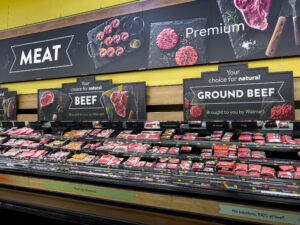
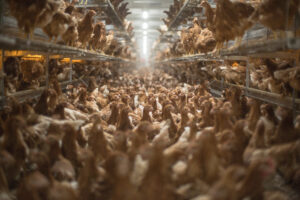
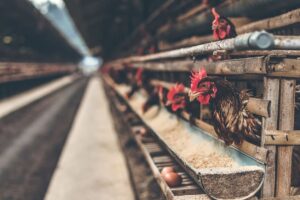

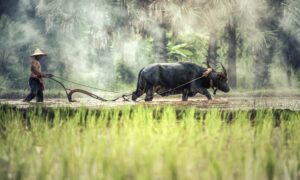

You need to be a supporter to comment.
There are currently no responses to this article.
Be the first to respond.